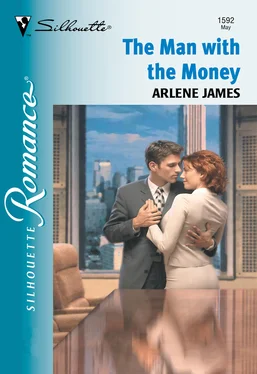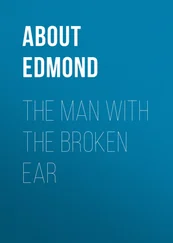A half hour later, she found herself standing outside a RuCom Electronics store, where she had more pressing matters to attend. Ponce and his little friends were counting on her. She pushed open the heavy glass door and walked through it into the shop, where her ex-husband was the branch manager. Surely he would help with some donation. A signal chimed. The muted clomp of the heels of her sensible pumps followed as she moved through stacks of computer accessories, telephones, radio-controlled model cars and stereo equipment on special sales promotion. RuCom was well-known for its rock-bottom prices and the stripped-down approach to retailing that made undercutting its competitors possible. The company was also known for its astonishing profit margins, and it was the latter that gave Charly hope, that and her ex-husband Dave’s easy-going demeanor.
While Dave’s level, laid-back manner made it possible for him and Charly to remain somewhat friendly after their divorce, it also added to Charly’s pain over the failure of the marriage. After a single short year of wedlock, she had been stunned when Dave announced that it had been a mistake. She hadn’t realized he was unhappy or that he blamed her preoccupation with work for it. While Charly had been thinking babies and how to fit a family into her schedule, David had been thinking divorce. Two years after the fact, she still smarted, not that she really thought much about Dave himself. It was more the opportunity to fulfill her desire for children that she missed, so much that she’d begun to investigate the possibility of adoption after Dave left her. Foster parenthood had been a step in that direction, and it was Charly’s most fervent hope that she would soon be allowed to adopt Ponce Jack, the angelic five-year-old with whom she’d shared her hectic life this past year. It was because of Ponce that she was here.
Walking up to the counter, she looked at the middle-aged clerk who wore his standard-issue RuCom T-shirt over a long-sleeved dress shirt and pleated slacks. The usual RuCom retail clerk was a teenager firmly rooted in computer geekdom. This guy looked more like an executive.
“Can I help you?”
“Dave around? Tell him Charly’s here.”
The man blinked at her name, then pointed to a posterboard sign on the counter. “Sorry, it’s Retail Staff Appreciation Day. The regular sales staff is off today.”
“Maybe I can help,” said another voice, and a tall, dark-haired man with brown eyes and a strong, square jaw stepped into view, a clipboard in one hand. “I’m in charge of the shop today.”
A blatantly handsome man, he looked to be about Charly’s own age, early thirties. The older fellow slid over and made room at the counter for him, an obvious act of deference. The newcomer wore his RuCom T-shirt with khakis, sans dress shirt, so Charly could only assume that he pulled rank due to actual sales experience. An odd, unfamiliar awareness shimmered through her, which was puzzlingly uncomfortable. She wished David was here, but since he wasn’t, she could only consider her options. The fees for the team had to be paid to the soccer league tomorrow, or the team would not be scheduled for games. If she struck out here, her only option was to borrow against her credit card and pay the fees herself. Might as well give this a shot.
Smiling, she stuck out her hand. “Charlene Michman Bellamy.”
The man put down the clipboard and took her hand in his, brown eyes sparkling. “Darren, uh, Rudd.”
“Pleased to meet you, Mr. Rudd.” Charly took her hand back and tried to relax, but a strange tingle made her tilt her head and shift her weight. “I have a problem I hope you can help me with. Actually, it’s sixteen four- and five-year-olds who need your help. These are underprivileged kids who can’t afford to buy their own school lunches, let alone the cleats, balls and uniforms needed to play soccer. I was hoping that—in exchange for advertisement, of course—your shop could sponsor the team.”
“I see.”
His gaze swept over her, and she wondered just what it was that he thought he saw. Fighting the urge to tug down the bottom of her demure navy business suit jacket, she pushed back her short, wispy red hair and squared her shoulders.
“I take it that your husband is the coach?”
Charly lifted both brows at what she considered a sexist remark. “Certainly not. I am the coach.”
His smile broadened, and he leaned forward, bracing both elbows on the countertop. “That’s cool. I just assumed…I mean, it’s usually the spouse who gets stuck with the fund-raising.”
“Well, I don’t have a spouse to stick with the fund-raising,” Charly retorted, amazed by the speculative gleam in those brown eyes. She cleared her throat. “What I have is a five-year-old who desperately wants to play soccer and no team to play on unless I get this thing off the ground.”
“This ‘thing’ being a team of underprivileged children,” he clarified.
Charly nodded. “The soccer commissioner gave me a list of kids who couldn’t get on teams because there weren’t enough scholarships to cover their fees. I intend to see to it that those fees are covered and the kids get to play.”
“Even if it means soliciting funds and coaching the team yourself,” he surmised.
“Yes.”
He straightened and folded his arms, asking, “Have you ever coached a soccer team before?”
She held his gaze. “No, but I’ve been reading a great deal and—”
“You think you can coach soccer from a book?” he interrupted skeptically.
She lifted her chin. “The proficiency level at this age is quite low, anyway. Besides, the most important thing is that they get to play.”
“So you don’t expect them to actually win any games.”
She didn’t, but she wasn’t about to admit it. Some of the teams in the league were outfitted with the very finest equipment and had committed, competitive coaches with the time and skill to turn out first-rate players. Some of them handpicked their players from a pool of eager applicants desperate to get onto winning teams. Most of that occurred with the older age groups, but the commissioner had already warned her that one coach in her level with a flawless win record had put together a team of all five-year-olds which he expected to “kick serious butt.”
Looking Darren Rudd right in the brown eyes—and quite enticing eyes they were with their long, black lashes and warm centers—Charly said, “Can you help me or not?”
To her surprise the older fellow butted in. “I’m afraid it’s just not possible, young lady. RuCom policy—”
“I am in charge here,” Darren Rudd interrupted mildly. The other man silenced like a tap turning off, but the look he turned on Rudd was all questions. The younger man smiled at Charly and said, “What Stevens was trying to say is that we don’t usually make such donations, but since the cause is so very good, I think we can make an exception this time.”
Charly closed her eyes in relief. “Thank you. This means more than you’ll ever know. If you’d like to verify what I’ve said, you can call the soccer commissioner.”
As she spoke, Darren Rudd moved to the cash register and began punching buttons. “Oh, I don’t think that will be necessary. You look like a trustworthy sort.” He smiled, and the cash drawer slid open. He started pulling out cash and counting it. “Will, say, five hundred dollars take care of it?”
Five hundred! Charly nearly collapsed. It was enough to pay the fees with nearly fifty dollars left over. “Yes!”
The older man gasped and exclaimed, “But Mr. Ru—”
Rudd held up a hand, cutting off his subordinate in midword. “If anyone has a problem with it, I’ll replace the funds out of my own pocket, all right, Stevens?”
Читать дальше












